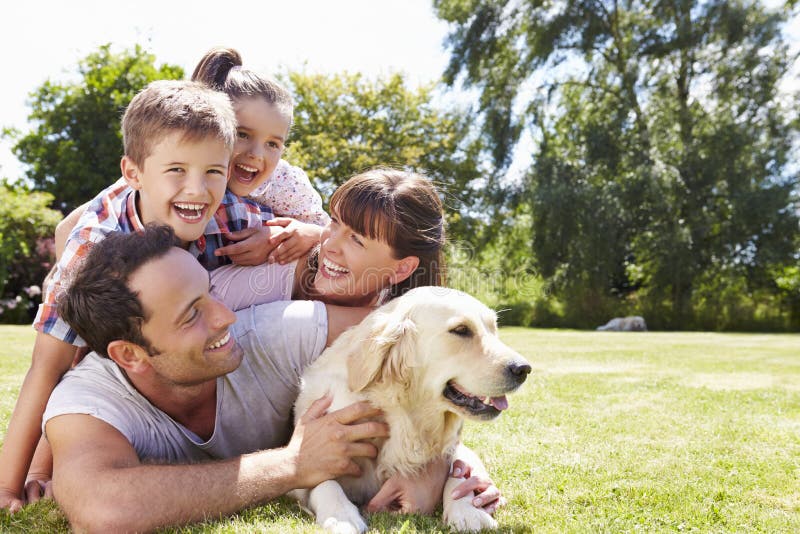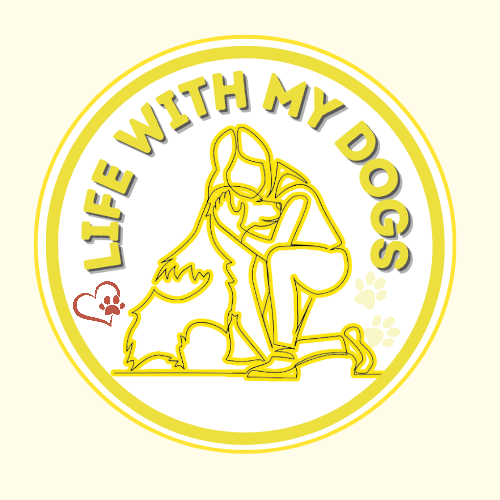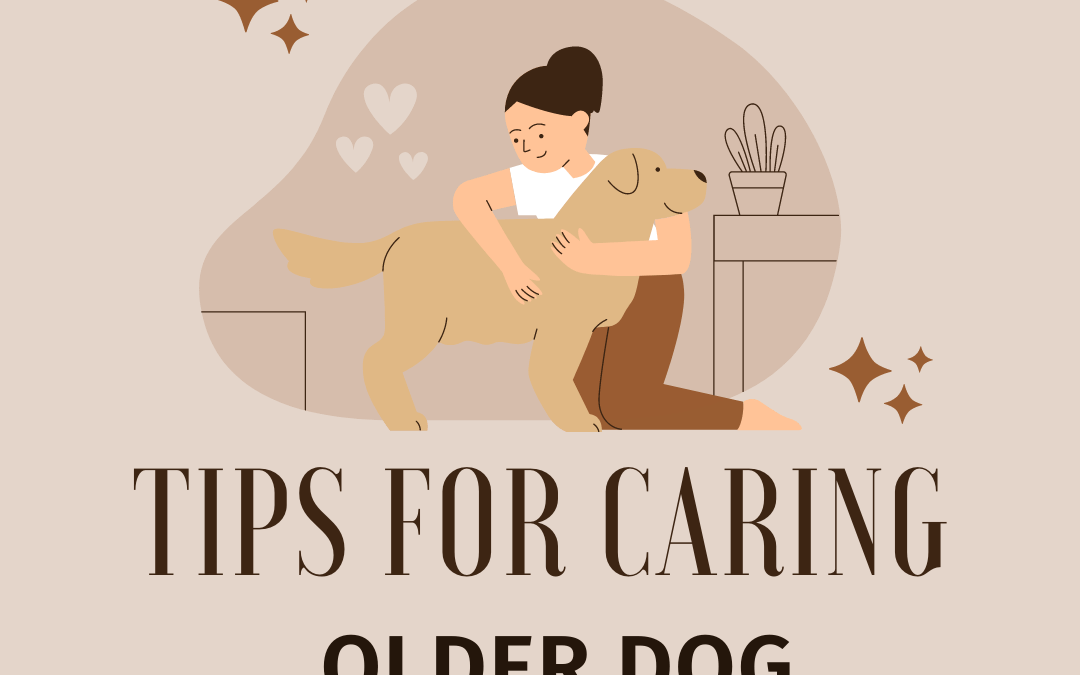LifeWithMyDogs is supported by our audience. When you purchase through one of our links, we may earn a small affiliate commission. As an Amazon Associate I earn from qualifying purchases. Your cost is not affected.
**********
Tips for Caring for an Older Dog
As the saying goes, everyone and everything ages. That is why a lot of people do everything they can to live and be in the moment. Aging is essential because we develop, grow better and create beautiful memories as time goes by. So we provided you the tips for caring for an older dog- which is definitely a must!
Dogs grow faster since they live shorter lives. We become their world when we make them part of our family, as puppies or young adults. In exchange for giving us all their love, care, and affection throughout their lives, having them live a peaceful and well cared for life when they become seniors is well-deserved.
This article will be as informative as possible regarding dog ages in human years and older dog health problems. Lastly, I see my dogs as family and would like to share in this article the different ways I care for them in their senior years.
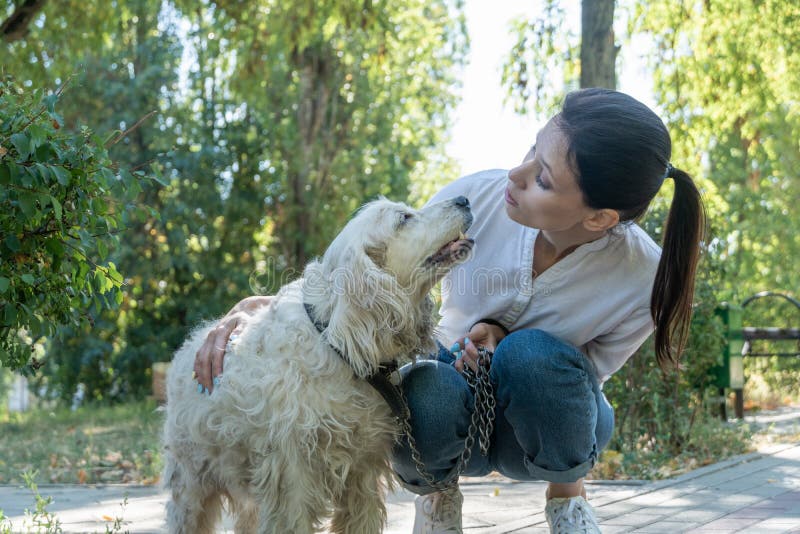
Dogs and Aging
There is a saying that aging is the only thing that is constant in this world. All dogs grow old. The important thing to know and remember is that they have different ranges when considered seniors. Generally, you can easily look up the age range of a dog’s senior years, but the best way to tell is through the telltale signs you can easily see.
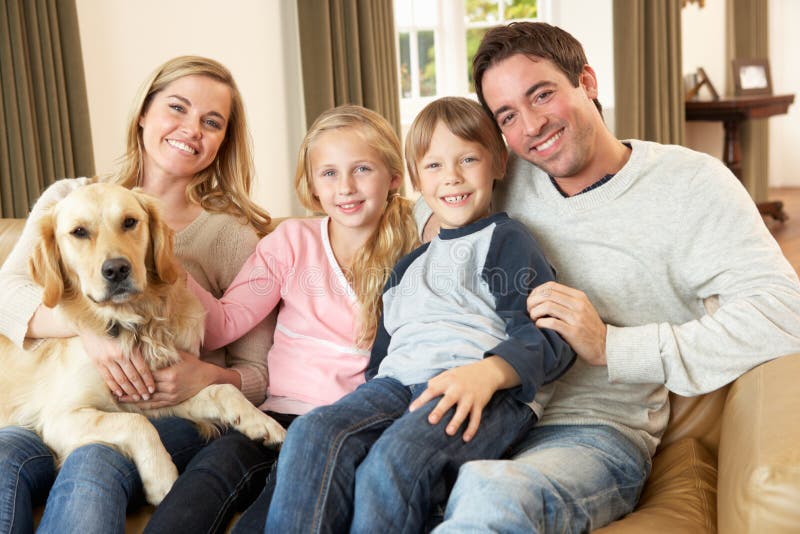
-
Age in Human Years
Subtle changes will happen now and then when caring for dogs. However, you can tell if your dog is in its senior years. While there are some variations because of breeds and sizes, typically, a dog is considered a senior at eight years old.
The general rule is that large dogs age faster, and smaller ones show signs of aging at around nine or ten years. The University of California, San Diego School of Medicine was able to calculate a dog’s age in human years accurately has been developed by the University of California San Diego School of Medicine. Typically, the rate is that a one-year-old dog is equivalent to fifteen human years. For the second year, you add nine years, and each additional year adds about four or five human years.
The formula they made is a bit complicated, but it considers dogs’ size and breed variations. They found that a small eight-year-old dog is equivalent to a forty-eight-year-old person and a medium or large one at fifty-one or fifty-five years old, respectively. Typical senior fifteen-year-old dogs are around seventy-six to a hundred fourteen in human years.
-
Health and Energy Levels
Age affects everyone, and this is pretty apparent in dogs. The first thing that many people notice is that their dogs slow down, and their senses become dull. Your once hyperactive puppy and your adult dog will slowly become sleepier and cuddlier. If you follow the many tips for caring for an older dog, you will get healthier senior dogs.
Dogs may weaken and become more susceptible to illnesses as they age. Some dogs may become less active and more prone to gaining weight as a result of this. The attitudes of certain dogs may shift while others mature gently. Dogs’ hearing and vision may decrease as they become older, causing them to become more anxious. Always be careful around senior dogs since they may be more prone to panic.
The reason for the weight increase is that when dogs become older, they expend less energy. Fat deposits are often growing and show as fatty lumps known as lipomas. Lipomas are lumpy lumps of fat that grow just under the skin anywhere on the body. However, they may also develop in the belly and chest of dogs.
-
Digestion and Dietary Changes
Dog’s age and their bodies change. Your dog’s weight may fluctuate depending on whether the dog gets enough activity and if given too many goodies or if the dog has bad digestion and is sick. Additionally, their sense of smell and taste deteriorates, which may cause them to alter their food choices or reduce the enthusiasm they feel and show at mealtime.
Constipation is more common in older dogs. The most common causes are a lack of electrolytes, fiber, or kidney issues. That is why fiber is often included in a dog’s food in wheat bran and specialized brands for water consumption.
Dental decay and pain from eating hard meals like kibble are the most frequent causes of a change in diet in older dogs. In reality, owing to dental decay or gum disease, older dogs’ teeth may ultimately fall off, and their teeth may exhibit significant wear. Some tips for caring for an older dog include soaking their meals, switching to wet food, or combining it with soft foods like yogurt or pumpkin.
Caring for Older Dog Health Problems
These three older dog health problems are the ones that I think are the most important to note and remember. They are essential because many people typically see these three older dogs’ health problems with their senior dogs. What’s worse is that these three can be fatal when untreated or if left unattended.
-
Less Appetite and More Drinking
When your older dog starts refusing to eat, know that something is wrong. This behavior is one of the classic indications that your senior dog is dying. If your dog has reached this stage, you may give them the most delicious food in the world, and they will still refuse to eat it. They may even refuse to consume any water, most likely because their organs are starting to shut down.
Another indication of a health issue is when dogs begin to consume excessive amounts of water. Diabetes, Cushing’s disease, cancer, diarrhea, fever, infection, kidney illness, and liver disease are all diseases that may cause excessive thirst or dehydration in your dog. However, it’s also possible that your dog’s extreme thirst may just be from the medicine used to treat the illness rather than the condition itself.
-
Lethargy and Tiredness
Your senior pet may show additional behavioral changes, such as looking more sluggish, not performing the activities they used to do, or not sleeping as well as they used to. A dull and frequently tired dog loses interest in playing, taking walks, and other activities that they usually love.
Infection or illness is the most frequent cause of lethargy and general weariness in dogs, and it may also be a sign of liver illness or cardiac issues.
-
Becoming Dull and Disoriented
When sprinting or simply strolling, older dogs tend to become dull, easily frightened, and unable to balance themselves properly. Sensory deficits, such as hearing and vision loss, may make some elderly dogs anxious. When they lose these abilities, they are far more likely to get confused or disoriented.
Another cause of elderly dogs being dull and confused is brain aging, which various health issues may exacerbate. The brain, like many other organs, deteriorates as we become older. The deterioration of your dogs’ brain will affect your dog’s ability to function and reduce its quality of life.
Caring for an Older Dog
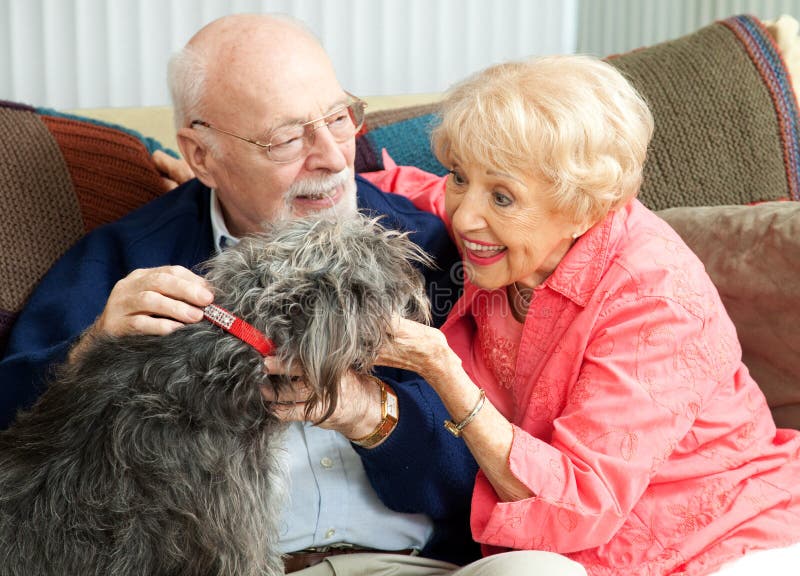
Finally, here are some of the things I have learned throughout the years of caring for my dogs, specifically my older ones. They have been with us for so long now that I stopped seeing and treating them like my pets but as part of my own family. These are my tips for caring for an older dog:
-
Keeping Them Active
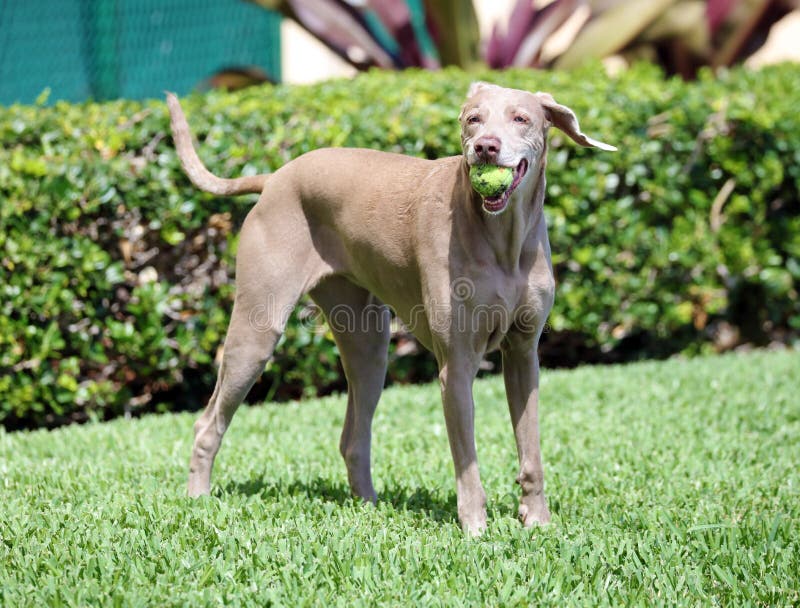
Keeping your dog active is one of the tips for caring for an older dog that is very important. Senior dogs are more likely to have health issues or other issues that restrict how much activity they can get. They tend to slow down or relax more, but it is still essential to keep them active to keep them healthy. Walking is a low-impact activity that benefits both you and your dog’s physical and mental health.
Walking your dogs briefly at least once a week will help your dog live longer and healthier. Talk to your veterinarian to determine what distance is comfortable for your senior dog to walk each day. Swimming is also beneficial since it is gentle on the joints. Lastly, since elderly dogs are more sensitive to temperature fluctuations, keeping them comfortable during your stroll is essential.
-
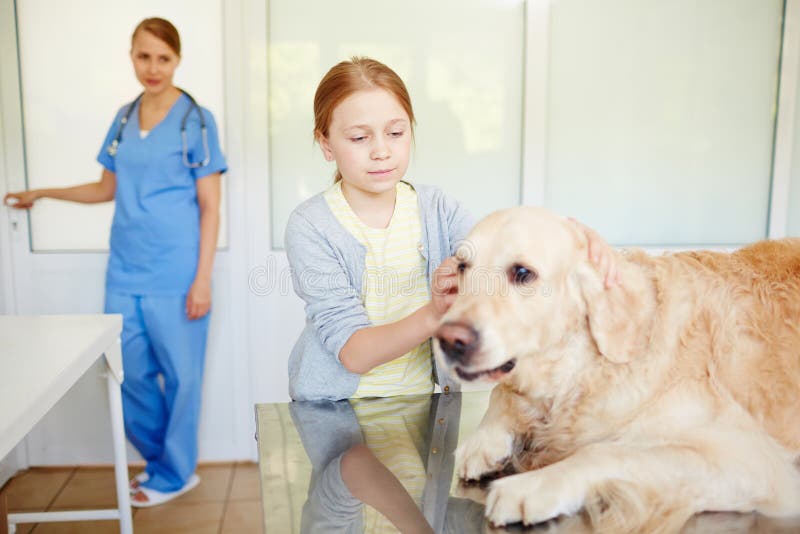 Checking Up and Being Informed
Checking Up and Being Informed
Veterinarians recommend that elderly dogs get their health checked twice a year. Senior dogs usually need wellness testing. Wellness testing involves a series of examinations and medical tests used to identify early or concealed illness in otherwise healthy dogs. Wellness testing can also monitor stable, but persistent health issues in elderly dogs.
Many owners find that having their older dogs’ blood work done regularly is sufficient. The greatest news is when your pet’s blood testing shows that everything is within normal range, suggesting that they are in excellent health as they approach their senior years. Your veterinarian may then recommend further blood work for senior dogs once or twice a year.
-
Changing Diet for the Better
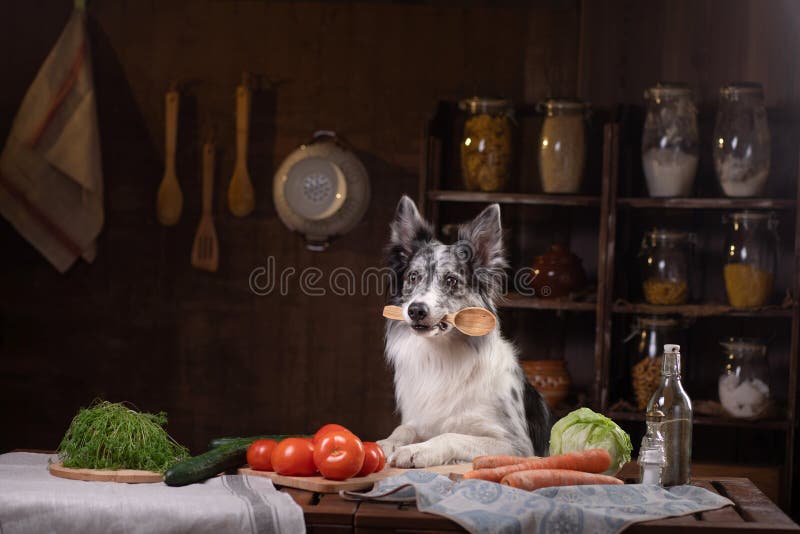
Changing your dog’s diet for the better is also one of the tips for caring for an older dog that is very important to note. Small quantities of fruits and vegetables are beneficial to all senior dogs, especially older and more prone to constipation. As I previously said, they benefit from the addition of fiber, electrolytes, and other nutrients. Senior dog meals should, on average, include less protein, fat, and carbs and add fiber and other nutrients.
When it comes to senior dog food, start with two percent of their body weight and modify as needed to meet their appetite and activities. A fifty-pound senior dog with a moderate level of exercise would consume around one pound of food each day. They also benefit from the feeding of senior dog food formulas. To maintain a leaner muscle mass, dogs require foods that contain higher protein. Supplementing your diet with minerals like glucosamine and omega-3 fatty acids will help maintain joint health and mobility.
-
Keeping Oral Health

A dog’s mouth requires regular care, just as you do with your teeth. You need to teach your dogs to feel comfortable with you touching their mouths. Brushing your dog’s teeth using a toothbrush for dogs and toothpaste is important. Using some toys and treats designed to decrease germs in your pet’s mouth will also be effective in keeping their oral health up.
If brushing their teeth is challenging for you, consider feeding him dental treats to help wipe off some of the gunk and grime stuck on his teeth. You can also place a powdered or liquid oral care additive in his water bowl. Dental chews for dogs may help keep teeth clean, but you must pick the proper ones. These will, at the very least, assist in freshening his breath.
-
Brushing and Grooming Regularly
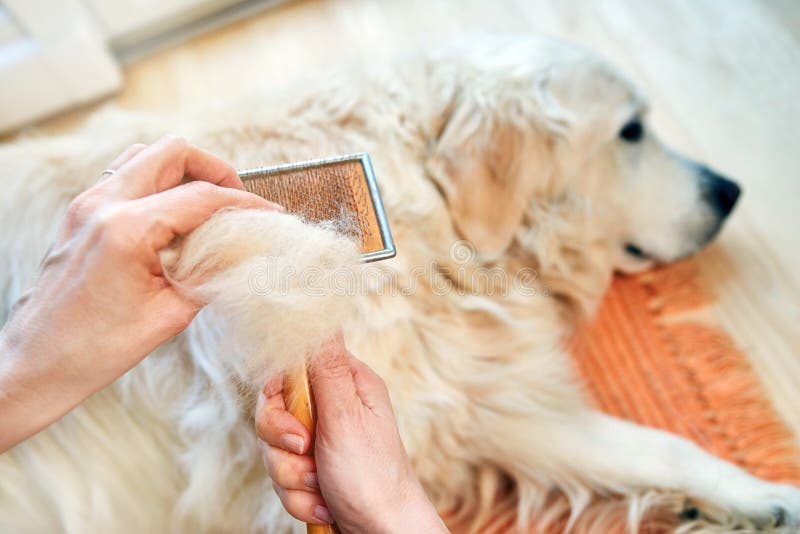
Brushing and grooming are some of the tips for caring for an older dog that often gets overlooked. Grooming is necessary for a dog’s whole life, but it becomes essential as it ages. The best reason is that it is ideal to notice any changes in a dog’s health during grooming sessions. Grooming your dog calms him, and it can quickly become a special moment for you both.
When washing elderly dogs, veterinarians often recommend using pet wipes. These wipes are convenient and portable, making them an essential item for every dog owner. Additionally, when older dogs’ skin dries out more often and their coats coarsen, using a shampoo and conditioner intended to remedy these things is your best option.
Dogs – A Man’s Lifelong Best Friend
Dogs are known to be a man’s best friend, and as one’s best friend, we should never forget to give them all the love and support in return for all the good memories we had with them. Older dog health problems will never be an issue if you know the right tips for caring for an older dog. Always remember that dogs are not just things we can discard when they get older with age. That is why caring for one is a lifelong responsibility. Love and care for your pet and ensure that they live out their lives full of happiness and love.
Read More:
The Health and Mood-Boosting Benefits of Pets(helpguide.org)
